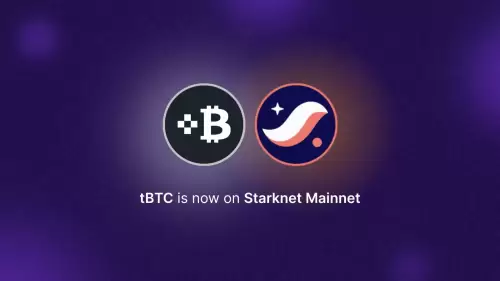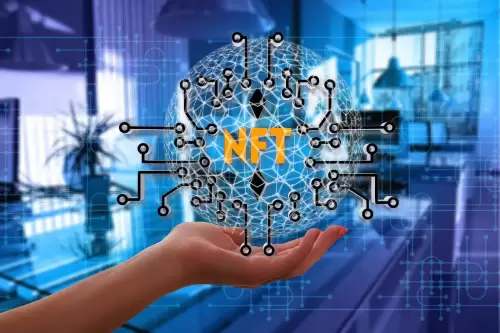 |
|
 |
|
 |
|
 |
|
 |
|
 |
|
 |
|
 |
|
 |
|
 |
|
 |
|
 |
|
 |
|
 |
|
 |
|

The speed and transaction fees of order book trading are finally reaching the levels they need to be used en masse on-chain. They were designed to deliver a central limit order book with nearly instant matching and settlement costs of a penny or less. But achieving both in a decentralized and gasless environment seemed impossible with smart contracts.
Yet, thanks to the combination of Sui’s parallel execution with an optimized matching engine, DeepBook is poised to bring exchange-grade pricing to the deep liquidity pools of DeFi protocols. Let’s look deeper at what DeepBook is, how it works within the sui ecosystem, how DEEP fits into the picture, and what benefits it can bring to your portfolio.
What is DeepBook on Sui?
DeepBook is an on-chain order-matching protocol. It's designed to serve as a native liquidity layer on the high-performance Sui blockchain.
Unlike decentralized exchanges and automated-market-maker DEXs, the DeepBook protocol uses a more traditional central limit order book (CLOB), which helps create tighter spreads and more familiar trading mechanics. Orders are stored as objects on Sui, which means they benefit from the blockchain’s parallel execution model, which has low latency and is often sub-second to finality.
Because DeepBook is embedded at the network level, wallets, aggregators, and DeFi protocols can plug directly into its order books, sharing deep liquidity instead of fragmenting it across siloed pools. This architecture positions DeepBook as a foundational service, much like Uniswap on Ethereum, giving Sui developers a readily available exchange engine without needing to rebuild core matching logic.
Benefits of DeepBook
* Superior price discovery: Deep integration with the Sui blockchain enables efficient price aggregation for optimal trading strategies.
* Parallel execution and low latency: Sui’s architecture and DeepBook’s optimization ensure rapid order matching and swift trade execution.
* Persistent order book: Ensures seamless trading experiences without the need to close and reopen positions.
* Deep liquidity from day one: Critical for generating sufficient trading volume to bootstrap the broader ecosystem.
* Minimal transaction fees: Enables efficient and cost-effective trading for all participants.
How does DeepBook work?
DeepBook is an on-chain central limit order book that lives natively on Sui. Instead of the constant-product curve used by automated market makers, it matches discrete bids and asks just like a traditional exchange, so traders get price-time priority and deterministic execution.
Two mechanisms keep liquidity deep and spreads tight. The first is that everyone starts at a standard fee, but if a taker stakes the minimum DEEP tokens in a pool and then trades past a volume threshold within the epoch, their marginal fee is automatically halved. Active flow, therefore, migrates to DeepBook because the costs fall the more you trade.
Next, makers who stake DEEP then earn proportionate token rebates that increase when a pool’s aggregate liquidity is low and decrease as liquidity improves. This creates a counter-cyclical curve, encouraging liquidity during quiet periods and preventing excessive payouts when books are already healthy.
Both of these perks hinge on stake-based participation, and without the minimum DEEP deposit, a wallet pays full taker fees and receives no maker rewards, aligning incentives between serious liquidity providers and the protocol. At the epoch’s end, any fees not recycled as maker incentives are permanently burned, so wash-trading becomes uneconomical and the token stays deflationary.
Finally, stakers govern the fee bands and staking thresholds for each pool with concave voting rights, which give smaller holders more weight and smaller holders and prevent whales from extracting monopoly rents. In practice, this unique blend of fee discounts, adaptive rebates, stake-gated access, fee burn, and pool-level governance orchestrates a self-balancing marketplace where professional market makers, DeFi protocols, and high-frequency traders can all access wholesale liquidity without centralization.
DeepBook Ecosystem
Several protocols are already integrating with DeepBook to offer diverse trading experiences. For example:
* Aftermath Finance is building an all-in-one hub for yield optimization, borrowing, lending, and covered calls.
* KriyaDEX is combining AMM+limit orders, while Cetus is deploying a concentrated-liquidity DEX.
* FlowX is developing a professional-grade trading portal, Hop is focused on cross-chain aggregation, and Turbos is aiming for a hyper-efficient DEX.
* 7K Aggregator is building an advanced route optimizer.
These protocols will plug directly into the shared DeepBook order book, which is being launched in parallel with the standard Uniswap-style AMMs. Together, they will offer the liquidity and trading options needed to power a new wave of DeFi on Sui.
Deep Book Token (DEEP)
DEEP token is the native token for the DeepBook protocol and fuels the economic layer. It powers the efficient routing of liquidity on-chain, forming the foundation for a vibrant and sustainable decentralized trading ecosystem.
免责声明:info@kdj.com
所提供的信息并非交易建议。根据本文提供的信息进行的任何投资,kdj.com不承担任何责任。加密货币具有高波动性,强烈建议您深入研究后,谨慎投资!
如您认为本网站上使用的内容侵犯了您的版权,请立即联系我们(info@kdj.com),我们将及时删除。
-

- TBTC在Starknet上发射,将比特币带入零知识汇总的世界
- 2025-06-14 08:45:12
- 比特币持有人现在可以以每笔交易的0.01美元的价格进行交易,借用和执行复杂的Defi策略
-

- NFT赌场正在以有趣的方式合并游戏和加密
- 2025-06-14 08:45:12
- 游戏和加密有多年的协作关系,但它继续激发新的途径和机会
-

- YouTube的创意经济现在为美国各地的490,000多个全职工作提供支持
- 2025-06-14 08:40:12
- 这标志着2022年平台造成350亿美元的GDP和390,000个工作岗位的急剧上升。
-

-

-

- 标题:比特币补充的H100集团在两个股份和可转换贷款中提高SEK 101m
- 2025-06-14 08:30:12
- 总部位于瑞典的H100 Group,这是一家公开交易的健康和长寿公司,最近采用了比特币
-

- 尽管比特币打算使人们选择退出以国家为中心的货币系统,但区块链行业自此失去了自己的方向。
- 2025-06-14 08:30:12
- 今天,我们看到政府的威胁以及区块链解决方案优先考虑可扩展性和绩效而不是权力下放。
-

-

- 许多消息来源表明,全球无牙的代币市场确实正在为另一次公牛奔跑做准备
- 2025-06-14 08:25:12
- 与以前的市场周期不同,正在进行的市场季节不同且独特。以太坊首次失去了NFT市场对多边形的统治地位


























































